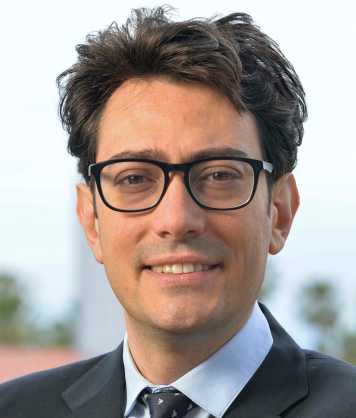ITSC 2022 Workshop on Co-Design and Coordination of Future Mobility Systems
The workshop will take place on October 8, 2022.
Subscribe to the mailinglist to receive updates: external page http://eepurl.com/h-RORj
Motivation
In past decades, cities worldwide have observed a dramatic urbanization.
Today, 55% of the world's population resides in urban areas, and in the next 30 years the proportion is expected to reach 68%
A direct consequence of the population density growth is the increase of urban travel, and of the externalities it produces.
In this rapidly expanding setting, cities have to take important decisions to adapt their transportation system to welcome larger travel demands. This is a very complex task for at least three reasons.
First, cities need to accommodate the changing travel needs of the population, by predicting them, and by ensuring fairness and equity.
Second, designed policies not only have to account for the citizens' satisfaction, but also for their impact on private Mobility Service Providers (MSPs) such as ride-hailing companies, micromobility, and, in a near future, Autonomous Mobility-on-Demand (AMoD) systems.
Indeed, such services gained a considerable share of the transportation market in recent years; e.g., in NYC, ride-hailing companies have increased their daily trips by 1000% from 2012 to 2019. While offering more choices to travellers, these systems operate benefiting from public resources (such as roads and public spaces), are profit-oriented, and often lead to potentially disruptive consequences for the efficiency of the transportation system and for society at large.
In this avenue, cities gain an important, onerous regulatory role.
Third, policies have to be designed while meeting global sustainability goals. It is not surprising that cities are estimated to be responsible for 78% of the world's energy consumption and for over 60% of the global greenhouse emissions (30% of which is produced by transportation, in US). Indeed, sustainability is central in policy-making worldwide: NYC plans to increase sustainable trips from 68% to 80%, and EU plans a 90% reduction of emissions by 2050.
Taken together, the aforementioned perspectives highlight the complexity of this socio-technical problem, and imperatively call for methods to inform and drive policy makers.
In this context, developed methods need to inform the co-design of individual mobility solutions and the associated mobility systems, accounting for a range of heterogeneous stakeholders with conflicting objectives.
We believe that the problem described above can be tackled by adopting a system-level perspective and by explicitly considering interactions between mobility stakeholders (both at the planning, and operational level, e.g., via game theoretical tools).
This workshop will gather experts from transportation, operations research, urban planning, and autonomy to
- Identify challenges and opportunities regarding the aforementioned problems;
- Present promising tools to address such challenges;
- Find interaction opportunities across diverse research communities to unite forces and tackle the problems.
We will have a series of keynote talks, followed by presentations from invited submissions.

Gioele Zardini is a Ph.D. student in Prof. Emilio Frazzoli's group at ETH Zurich. He received his BSc. and MSc. in Mechanical Engineering with focus in Robotics and Control from ETH Zurich in 2017 and 2019, respectively. Duringhis studies, he worked as an intern in nuTonomy Singapore (now Motional) and was a visiting researcher at Stanford University, in Prof. Marco Pavone's Autonomous Systems Lab, and MIT, in Dr. David Spivak's group. His research interests include the co-design of future mobility systems and of robotic systems, and more in general compositionality in engineering.

Emilio Frazzoli,
Emilio Frazzoli is a Professor of Dynamic Systems and Control at ETH Zurich, and former CSO of Motional. His main research interest are in robotics, autonomous systems, and intelligent mobility. In acknowledgement of his seminal work in these fields, Emilio has received numerous awards, including the the 2015 IEEE George S. Axelby Award and the 2017 IEEE Kiyo Tomiyasu Award, and has been named an IEEE Fellow in 2019. Emilio has published more than 200 papers in the fields of robotics, autonomous vehicles, and drones. A former full professor at MIT, he directed the research group that first demonstrated an autonomous mobility (“robotaxi”) service to the public, and performed the first analysis of the social and economic impact of such a service, based on real transportation data. In 2013 he founded nuTonomy with Karl Iagnemma, and served as its Chief Technology Officer until its acquisition by Aptiv in 2017.

Marco Pavone,
Marco is an Associate Professor of Aeronautics and Astronautics at Stanford University, where he is the Director of the Autonomous Systems Laboratory and Co-Director of the Center for Automotive Research at Stanford. He is currently on a partial leave of absence at NVIDIA serving as Director of Autonomous Vehicle Research. He received a Ph.D. degree in Aeronautics and Astronautics from the Massachusetts Institute of Technology in 2010. His main research interests are in the development of methodologies for the analysis, design, and control of autonomous systems, with an emphasis on self-driving cars, autonomous aerospace vehicles, and future mobility systems.
He is a recipient of a number of awards, including a Presidential Early Career Award for Scientists and Engineers from President Barack Obama, an Office of Naval Research Young Investigator Award, a National Science Foundation Early Career (CAREER) Award, a NASA Early Career Faculty Award, and an Early-Career Spotlight Award from the Robotics Science and Systems Foundation. He was identified by the American Society for Engineering Education (ASEE) as one of America's 20 most highly promising investigators under the age of 40.
He is currently serving as an Associate Editor for the IEEE Control Systems Magazine.

Kara Kockelman,
Kara Kockelman is a registered professional engineer and holds a PhD, MS, and BS in civil engineering, a master’s in city planning, and a minor in economics from the University of California at Berkeley. She has been a professor of transportation engineering at the University of Texas at Austin for 23 years, and is the recipient of an NSF CAREER Award, Google Research Award, MIT Technology Review Top 100 Innovators Award, Vulog’s Top 20 of 2020 Influential Women in Mobility, and various ASCE, NARSC, TRF, and WTS awards. She recently served as President of the North American Regional Science Association and sits on the Eno Center for Transportation’s Advisory Board, as well as 3 TRB Committees. She has authored over 190 journal articles (and two books), and her primary research interests include planning for shared and autonomous vehicle systems, the statistical modeling of urban systems, energy and climate issues, the economic impacts of transport policy, and crash occurrence and consequences. Pre-prints of these articles (and book contents) can be found at external page www.caee.utexas.edu/prof/kockelman.

Jinhua Zhao,
Prof. Jinhua Zhao integrates behavioral and computational thinking to decarbonize the global mobility system.
He shapes sustainable travel behavior and designs multimodal mobility system. He runs the external page JTL Urban Mobility Lab and external page Transit Lab at MIT and leads long-term research programs with transportation authorities and operators in London, Chicago, Washington D.C., Singapore and Hong Kong. Prof. Zhao sees transportation as a language to describe a person, characterize a city, and understand an institution, and enables cross-culture learning between cities in North America, Asia and Europe. He is the co-founder and chief scientist for TRAM, a mobility decarbonization venture.
He founded and directs the external page MIT Mobility Initiative.

Dario Paccagnan,
Dario Paccagnan is an Assistant Professor at the Department of Computing, Imperial College London since the Fall 2020. Before that, he was a postdoctoral fellow with the Center for Control, Dynamical Systems and Computation, University of California, Santa Barbara. He obtained his PhD from the Automatic Control Laboratory, ETH Zurich, Switzerland, in 2018. He received a B.Sc. and M.Sc. in Aerospace Engineering
from the University of Padova, Italy, in 2011 and 2014, and a M.Sc. in Mathematical Modelling and Computation from the Technical University of Denmark in 2014; all with Honors. Dario’s interests are at the interface between game theory and control theory,
with a focus on the design of behavior-influencing mechanisms for socio-technical systems. Dario was a finalist for the 2019 EECI best PhD thesis award and was recognized with the SNSF Early Postdoc Mobility Fellowship, the SNSF Doc Mobility Fellowship, and
the ETH medal for his doctoral work.

Klaus Bogenberger,
Professor Bogenberger focuses on the theory of traffic flow in urban road networks and on motorways. In particular, new data sources such as vehicle data or drone data are used for mathematical modeling. Traffic simulations based on the resulting models are used to analyze the traffic effects of emerging technologies, such as autonomous vehicles or new control processes. His research is currently focused on the development of innovative traffic control methods that incorporate vehicle data and improve the traffic situation for pedestrians and cyclists. For years he has also been dealing with procedures for analyzing the quality of traffic information. Other research focuses are sharing systems and new forms of local public transport, such as on-demand mobility, robot taxi systems and urban cable cars.
Professor Bogenberger studied civil engineering at the Technical University of Munich from 1991 to 1996, after which he was a research assistant at the Traffic Engineering and Traffic Planning Department at TUM from 1996 to 2001 with Univ.-Prof. Dr./UCB Hartmut Keller. He received his doctorate in 2001 on "Adaptive Fuzzy Systems for Coordinated Traffic Responsive Ramp Metering". From 2001 to 2008 he worked for the BMW Group in Munich, first as a speaker for the BMW Group in the "Science and Transport" area, then in the "Company Quality" area. From 2008 to 2011 he was managing partner of TRANSVER GmbH, before being appointed full professor for Traffic Engineering at the Institute for Spatial Planning and Transportation at the University of the Bundeswehr in Munich in 2012.

Christos Cassandras,
Christos G. Cassandras is Distinguished Professor of Engineering at Boston University. He is Head of the Division of Systems Engineering, Professor of Electrical and Computer Engineering, and co-founder of Boston University’s Center for Information and Systems Engineering (CISE). He received a B.S. degree from Yale University, M.S.E.E from Stanford University, and S.M. and Ph.D. degrees from Harvard University. In 1982-84 he was with ITP Boston, Inc. where he worked on the design of automated manufacturing systems. In 1984-1996 he was a faculty member at the Department of Electrical and Computer Engineering, University of Massachusetts/Amherst. He specializes in the areas of discrete event and hybrid systems, cooperative control, stochastic optimization, and computer simulation, with applications
to computer and sensor networks, manufacturing systems, and transportation systems. He has published over 450 refereed papers in these areas, and six books. He has guest-edited several technical journal issues and serves on several journal Editorial Boards. In addition to his academic activities, he has worked extensively with industrial organizations on various systems integration projects and the development of decision-support software. He has most recently collaborated with MathWorks, Inc. in the development of the discrete event and hybrid system simulator SimEvents.
Dr. Cassandras was Editor-in-Chief of the IEEE Transactions on Automatic Control from 1998 through 2009 and has also served as Editor for Technical Notes and Correspondence and Associate Editor. He is currently an Editor of Automatica. He was the 2012 President of the IEEE Control Systems Society (CSS). He has also served as Vice President for Publications and on the Board of Governors of the CSS, as well as on several IEEE committees, and has chaired several conferences. He has been a plenary/keynote speaker at numerous international conferences, including the American Control Conference in 2001, the IEEE Conference on Decision and Control in 2002 and 2016, and the 20th IFAC World Congress in 2017 and has also been an IEEE Distinguished Lecturer.
He is the recipient of several awards, including the 2011 IEEE Control Systems Technology Award, the Distinguished Member Award of the IEEE Control Systems Society (2006), the 1999 Harold Chestnut Prize (IFAC Best Control Engineering Textbook) for Discrete Event Systems: Modeling and Performance Analysis, a 2011 prize and a 2014 prize for the IBM/IEEE Smarter Planet Challenge competition (for a “Smart Parking” system and for the analytical engine of the Street Bump system respectively), the 2014 Engineering Distinguished Scholar Award at Boston University, several honorary professorships, a 1991 Lilly Fellowship and a 2012 Kern Fellowship. He is a member of Phi Beta Kappa and Tau Beta Pi. He is also a Fellow of the IEEE and a Fellow of the IFAC.

Fei Miao,
Fei Miao is an Assistant Professor of the Department of Computer Science & Engineering, a graduate faculty of the Department of Electrical & Computer Engineering, and she is also affiliated to Institute for Advanced Systems Engineering, University of Connecticut. Before joining Uconn, she was a postdoc researcher at the GRASP Lab and the PRECISE Lab with Professor George J. Pappas and Professor Daniel D. Lee, Department of Electrical and Systems Engineering at the University of Pennsylvania. She got her Ph.D. degree, and the "Charles Hallac and Sarah Keil Wolf Award for Best Doctoral Dissertation" in Electrical and Systems Engineering in 2016, with a dual Master degree of Statistics from Wharton School, from the University of Pennsylvania. She got her bachelor's degree of Science from Shanghai Jiao Tong University (SJTU) in 2010 with a major in Automation and a minor in Finance.
An official call for papers has been officially launched by ITSC'22 organizers, and papers submitted and accepted to the conference with preference to this workshop will be assigned an oral presentation at the workshop.
We issued another call for papers (not related to ITSC proceedings) external page here.
Selected submissions will be assigned a oral or poster presentation at the workshop.
TBA

Gioele is a Ph.D. candidate at the Institute for Dynamic Systems and Control at ETH Zurich, under the supervision of Prof. Emilio Frazzoli.
He received the B.Sc. and the M.Sc. degrees in mechanical engineering, with focus in Robotics, Systems, and Control from ETH Zurich in 2017 and 2019, respectively.
He worked at nuTonomy (then Aptiv AM, now Motional) and was a visiting researcher at Stanford University and Massachusetts Institute of Technology.
His current research interests include the co-design of complex systems (all the weay from future mobility to embodied intelligence), compositionality in engineering, planning and control, and game theory. He is the recipient of the Best Paper Award (1st Place) at the 2021 IEEE International Conference on Intelligent Transportation Systems.

Nicolas is a Ph.D. candidate at the Automatic Control Laboratory at ETH Zurich, under the supervision of Prof. Florian Dörfler.
He received the B.Sc. and the M.Sc. degrees in mechanical engineering, with focus in Robotics, Systems, and Control from ETH Zurich in 2016 and 2019, respectively. He was a visiting researcher at Massachusetts Institute of Technology and Stanford University. His current research interests include optimal transport and gradient flows in the Wasserstein space, with applications in robust optimization and game theory. He is the recipient of the Willi Studer Prize, the ETH Medal and the SVOR/ASRO award for his Master's thesis, and the Best Paper Award (1st Place) at the 2021 IEEE International Conference on Intelligent Transportation Systems.

Andrea Censi is deputy director of the Dynamic Systems & Control chair. He obtained a Ph.D. from Caltech. Previously, he has been a research scientist at MIT and Director of Research at Aptiv Mobility (now Motional). He is president of the Duckietown Foundation.

Emilio Frazzoli,
Emilio Frazzoli is a Professor of Dynamic Systems and Control at ETH Zurich, and former CSO of Motional. His main research interest are in robotics, autonomous systems, and intelligent mobility. In acknowledgement of his seminal work in these fields, Emilio has received numerous awards, including the the 2015 IEEE George S. Axelby Award and the 2017 IEEE Kiyo Tomiyasu Award, and has been named an IEEE Fellow in 2019. Emilio has published more than 200 papers in the fields of robotics, autonomous vehicles, and drones. A former full professor at MIT, he directed the research group that first demonstrated an autonomous mobility (“robotaxi”) service to the public, and performed the first analysis of the social and economic impact of such a service, based on real transportation data. In 2013 he founded nuTonomy with Karl Iagnemma, and served as its Chief Technology Officer until its acquisition by Aptiv in 2017.
These entities sympathize with the initiative:

